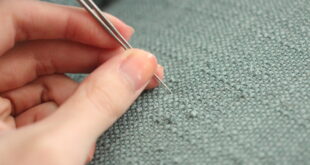‘O sleep, O gentle sleep,
Nature’s soft nurse, how have I frightened thee.
That thou no more will weigh my eyelids down,
And steep my senses in forgetfulness.’
William Shakespeare, Henry IV.
Many of us, like the weary King Henry, spend the wee hours wondering why the heck sleep won’t come to us.
Was it that last cup of coffee? The tension of work? The endless list of chores waiting for us? Or perhaps something lurking under the bed?
We need good quality sleep to function as decent human beings. So why is it so bloody hard to get?
For many people, sleeplessness is thankfully a temporary disturbance. Usually a product of poor sleep hygiene rather than a chronic condition.
There are a whole host of things we can do to drift off quickly and improve the quality of our sleep. Most of which are simple changes we can make right now. Yes, I’m talking to you desperate souls reading this at 3 am!
Why Is Sleep Important?

Sleep is like a mini-vacation and spring cleaning all in one. It is when our brains sort out all the junk from the day and reorganize the important bits and get rid of the trash. While this is happening, our other body systems are resetting, resting, and repairing any damage from the day before.
It’s vital to both our physical, mental and emotional wellbeing. We often forget that sleep is as essential to life as eating and drinking. Short periods of sleeplessness won’t kill you, but it will impact how you function.
Anyone who has lived with an infant or toddler knows just how much of an effect sleeplessness has on our mood. After all, babies who don’t get enough sleep become bawling bundles of bother. Adults who don’t get enough sleep become snarky sacks of sorrow.
It’s not just our mood that is affected though. If we don’t get enough quality sleep then our brains don’t get a chance to create new neural pathways. This prevents us from learning new things and accessing previously acquired skills and knowledge. Essentially, it makes us zombie-like drones who can’t remember how to use the photocopier.
As for the rest of our bodies, sleep is key to staving off some of the nastiest diseases like diabetes, heart disease, stroke, and obesity. This is because our organs and systems don’t get a chance to calm down and reset.
What is ‘Quality Sleep?’
There is a scale of sleep quality. A catnap might help you make it through the day but it doesn’t give your brain and body a chance to refresh and relax. This is because you don’t tend to go through the sleep cycle.
There are 4 stages of sleep, imaginatively named stage 1, stage 2, stage 3, and REM. Each stage has a different function. Quality sleep allows you to cycle through these stages several times each night.
The first stage is a transition to sleep, you can still wake up easily in case of an emergency.
Stage 2 is when your brain waves, muscles, breathing, and heart rate begin to really decrease. Memory consolidation begins during this stage.
Stage 3 is considered deep sleep. During this stage, your brain physically cools down and blood is directed elsewhere. Growth hormones are released in youngsters and your immune system is activated to fight off any germs you’ve picked up in the day.
REM sleep, or rapid eye movement sleep, is when your brain is most active but your body is paralyzed. During this stage, your brain reorganizes, completes memory consolidation, and forges new neural pathways.
You can’t skip a step so quality sleep is important. It allows you to reach the deeper levels and receive the benefits. If you don’t get enough of each stage, you will not feel rested and revitalized as the process is incomplete.
How To Sleep Better

- Set and keep a sleep schedule. Your body likes routines even if your mind doesn’t. Our bodies and systems are governed by something called the circadian rhythm. It’s an internal body clock that keeps us up in the day and makes us sleepy at night. Keeping to a set sleep schedule helps this clock wake us up or send us to sleep.
Try to go to sleep at the same time each night and wake up at the same time in the morning. It might take a few weeks to get used to but stick with it.
- Get some sunlight and darkness! It might seem counterproductive but it’s important to see some sunlight in the day. Natural and artificial light tells our body clock that it is day time and we should be awake. Equally, darkness tells our body to get sleepy.
If you’re a shift worker who struggles to get natural daylight or darkness, try getting a sun lamp. This will help your body stay awake when it needs to. When you come home to sleep, try to make the room as dark as possible.
- Don’t eat before bed. Digesting food is a lot of work and most foods tend to give us energy. You want to try and avoid eating for 3-4 hours before bed. This lets you complete digestion and allows any extra energy to dissipate.
- Avoid caffeine and nicotine. Caffeine is a stimulant that speeds up our bodily functions. It can give you a boost in the morning but after noon, it is your enemy. Switch to decaf after lunch to allow your body time to slow down before bed.
Nicotine is also a stimulant but worse than that, it causes cravings. The last thing you want is the urge to have a smoke or a vape as you’re drifting off. Where possible kick the habit completely. Withdrawal symptoms ease and you’ll get better sleep after it.
- Relax before bed. You can’t come to a dead stop if you’re going at 100mph. The same is true for your brain. Take some time to calm yourself. Try some yoga or breathing exercises that help your brain slow down.
Try some of these exercises and techniques each night before you go to bed. You might find that some work better than others for you. That’s ok.
- Put the phone away! The same is true of any other electronics like TVs, consoles, and e-readers. They all emit blue light which tricks your body into thinking it’s daytime. Even when you use the blue light filter, the screens can still cause sleeplessness.
These things also tend to engage your brain. This is not what you want when you’re trying to get it to shut off! Stop using electronics at least an hour before bed. Instead, try reading. Just six minutes before bed has been proven to reduce stress.
- Get comfy. Perhaps the most important tip of all, make sure you are comfortable. Set your thermostat to a cooler but comfortable temperature. Get your favorite pillows, some loose-fitting nightwear, and snuggle up on a decent mattress.
Most people forget that they need to replace their mattress every five years which means that they’re sleeping on worn out, uncomfortable beds. You need to have a supportive mattress that lets your body relax without causing pain.
For better sleep and mattresses that adjust to support your individual needs, try isense mattresses. You can raise, lower, and customize your mattress nightly to help you find the best possible position.
Final Thoughts
Perhaps the worst thing you can do if you’re struggling to sleep is focus on the fact that you’re not sleeping. This causes stress and anxiety which are not conducive to sleep.
If you’re faced with sleepless nights, remember to stay calm and relaxed. Make your bed as comfortable as possible and take some deep breaths. Sleep will come if you stop chasing it.



